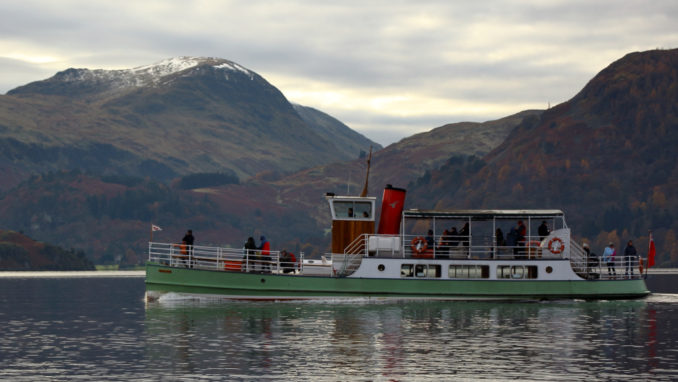
© Colin Cross, Going Postal 2020
Although not a born and bred Cumbrian I’ve made my home, for the second (and final) time in the Lake District. I first came here in 1975 and although the attractions on a base level were different to those that keep me here now I’ve always been taken by the simple rugged beauty of the area. I’m lucky enough to live within walking distance of Ullswater and, although I didn’t do a great deal of walking and exploring during the 70’s, I’m trying to make up for that now. I’ve written on previous occasions about the Cumbrian people, especially those that inhabit the rural areas of what is known as “The North Lakes”. I admire their humour, their stoicism, their almost Yorkshire like work ethic and their reluctance to suffer fools. I’ve made friends with several of them and, after being back in the area for 12 years and in the house for nearly 9, I think I’m accepted as part of the community, although some of my drinking pals still refer to me as a “southern softy” and take the mickey out of the fact that I’ll wear scarf, hat and gloves when the temperature is still above 0 degrees centigrade. Some people refuse to even wear a coat until we reach -1.
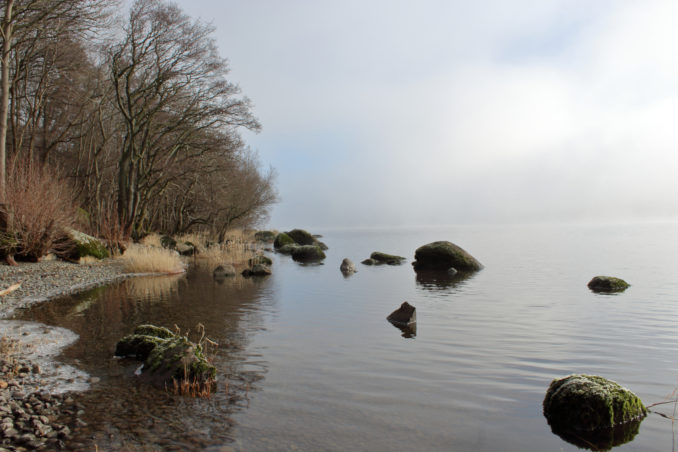
© Colin Cross, Going Postal 2020
In recent weeks “diversity” and “inclusivity” have become topics for discussion locally following a series of press articles surrounding comments made by Richard Leafe, the Chief Executive of the Lake District National Park Authority. Mr Leafe is, as you might expect, a Quangocrat of some years experience and, although I have never met him, I’d guess he sees the National Park as some kind of fiefdom. I have no idea how he formulates his opinions on the area or whether or not he makes the time to meet and speak to those that I would call “ordinary people”. I don’t know if he has the time, or the inclination, to walk the fells and “lake” sides (there is only one true lake in the Lake District), visit the small rural pubs or even interact with those that eke out a living subsistence farming on land that is, more often than not, classed as “severely disadvantaged”, but I think not.
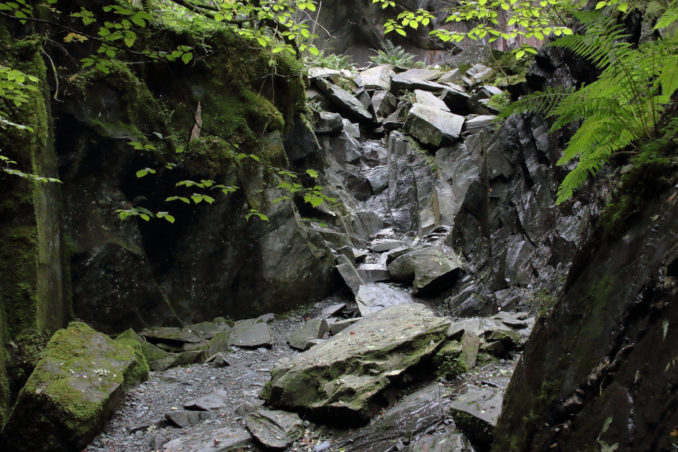
© Colin Cross, Going Postal 2020
This beautiful rugged part of Britain sees around 19 million visitors a year. On some days during the summer, on the very odd occasion that I visit those areas most popular with tourists, I think they’ve all come on the same day, such is the clamour around places like Ambleside, Windermere and the South Lakes in general. The overwhelming majority of these visitors are able bodied, hardly surprising given that most of the activities on offer, outside wandering around the shops in the tourist traps, involve some form of physical endeavour, even if it’s just getting on and off a ferry boat. That isn’t to say that great strides haven’t been made to create accessible paths where possible and to make it easier for people who aren’t so physically able to enjoy, at least in part, the wonders of the Lake District. After reading the article one wag in my local even suggested he might be considering bulldozing a fell or two to accommodate those less able to walk to the tops. Below is part of what Mr Leafe said, the full article can be viewed here; Lake District bids to encourage greater diversity among visitors
“We need to be able to sell the national park to everybody in Britain, all of society, and it’s important that it doesn’t just become exclusive to one single-use group, the moment we get into that position I think national parks start to lose their relevance and therefore the very reason for calling it a national park and spending public money. We are deficient in terms of young people, we are deficient in terms of black and minority ethnic communities and we are not particularly well-visited by those who are less able in terms of their mobility. Our challenge is to see what we can do to reverse that, to encourage people from broader backgrounds and a wider range of personal mobilities into the national park to be able to benefit in the same way that those other groups do.”
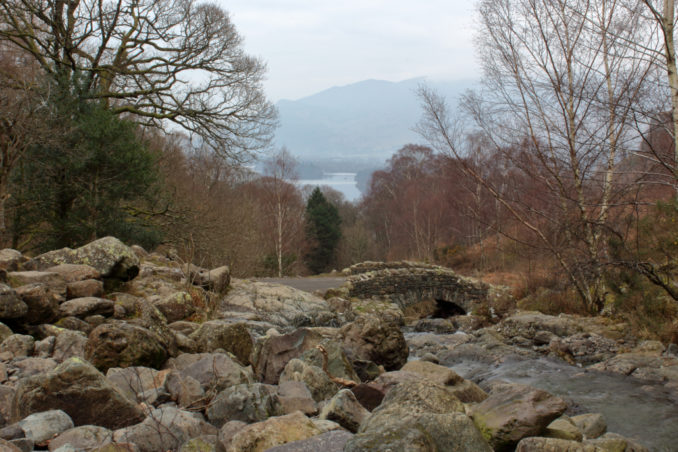
© Colin Cross, Going Postal 2020
What Mr Leafe is implying, in my very humble opinion, is that when you remove reference to the less physically able, then the The Lake District is simply far too white and far too old, not only in the makeup of its visitors but also its residents.To a certain extent he has a point. Where residency is concerned then yes, some young people are leaving the area for the more “cosmopolitan” life of the city dweller, although I know quite a number who haven’t taken that option. On the other hand, more and more younger professionals are eschewing the joys of urban living and making their homes “up north”, whether in time this will balance out it’s hard to say but the joys of rural living aren’t only restricted to those of the “older generation”. More to the point though is the makeup of visitors. Mr Leafe contends that “black and ethnic minorities” are conspicuous by their absence but I would contend that, in very many cases, this is by choice and not by exclusion. I’d suggest that the age make up of those people I encounter when out walking does lean toward the more middle aged but increasingly I see groups of young people and lots of families tramping about the hills enjoying the “Lakes”.
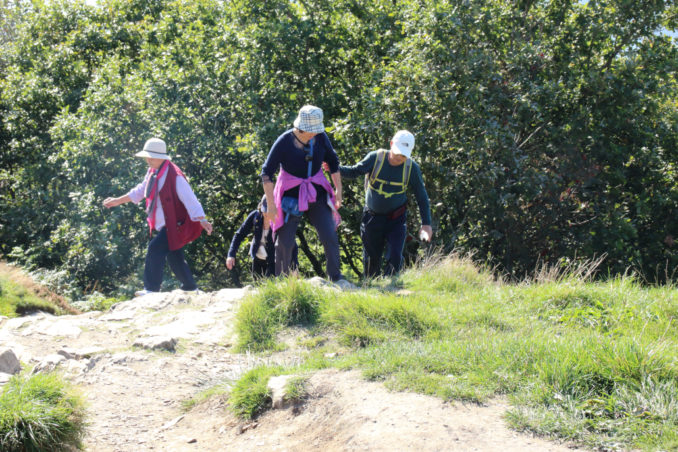
© Colin Cross, Going Postal 2020
Over the last couple of years I’ve also noticed (this is backed up by the Lake Districts own figures) an increase in visitors from both Japan and, to a lesser extent, China. There are always groups of Americans and Canadians too, but almost always they’re “white”. The Oriental people tend, in my experience anyway, to stick in their tour groups which may well be a language thing but the North Americans will always have a chat when prompted. They’re very interested in both the place and the people. There’s also an altogether different type of visitor, the day tripper. People descend, again on the more popular tourist hot-spots, from the North East, Yorkshire and Lancashire, I’ve even met the odd Scot. Apart from the occasional Indian family groups and the even rarer Pakistani groups (clearly recognisable by their mode of dress) these visitors too tend to be white and many of them would see themselves as working class, a demographic that doesn’t seem to be on Mr Leafe’s radar.
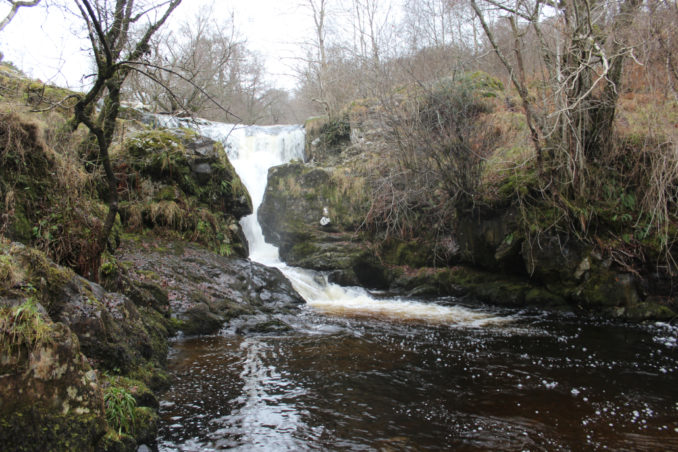
© Colin Cross, Going Postal 2020
It’s easy to spot the day visitors, to a man, woman and child they’re singularly ill equipped for a fell walk or a trek up the side of a waterfall. A couple of years ago I visited Aira Force in the dead of winter. The path down was treacherous with ice and I was thinking about turning back when I came across an Indian family, dressed in their Sunday best and holding onto each other for all they were worth, coming towards me. They were laughing at the absurdity of what they were trying to do but seemed determined to carry on. I advised caution, but they continued their ascent, obviously determined to make the most of their day. I didn’t see them again, I’m sure they got home alright.
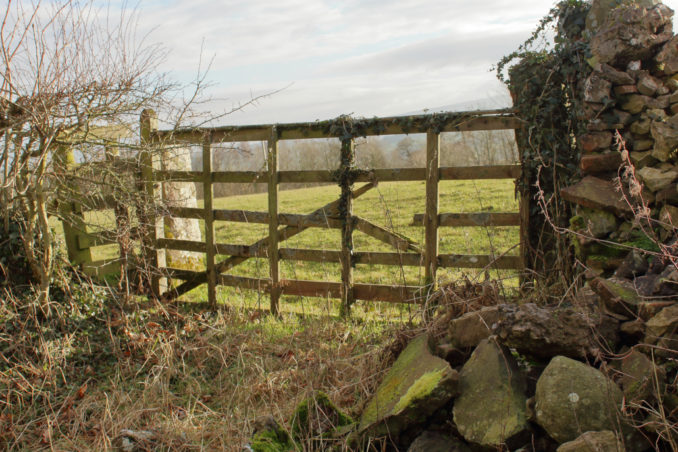
© Colin Cross, Going Postal 2020
It’s clear to me that, where the Lake District is concerned, then the “You can lead a horse to water, but you can’t make it drink” idiom applies. Afro-Caribbean people are far and away the rarest demographic I’ve personally encountered in The Lake District. I may have seen a couple of families over the last few years, who would most likely have been day trippers and I have seen groups of younger people comprised of different races who I assume are students. The inescapable conclusion for me is that the types of activities available aren’t those that would naturally attract people from Afro-Caribbean backgrounds, although, saying that, I’m certain that if they took the opportunity to visit and made sure they had the right equipment for what they wanted to do they’d have a great time, everyone else that comes here seems to.
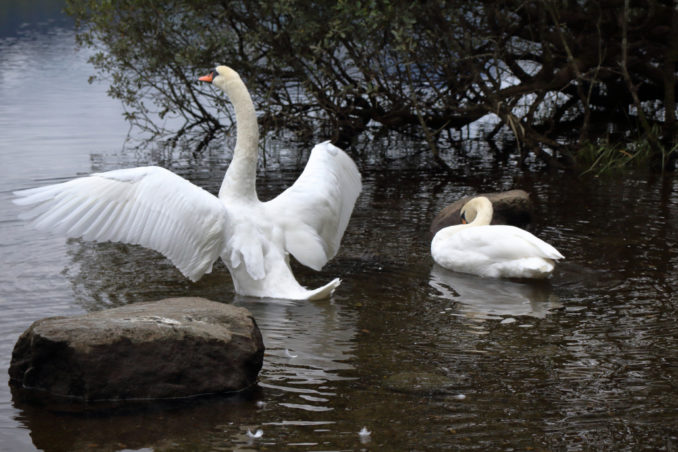
© Colin Cross, Going Postal 2020
It might well be fashionable in certain circles to imply that somewhere is either too “white”, too “old” or even too English but buying into that theory does no one any favours. Britain is the most tolerant and welcoming of places, all we ask (here I hope I can speak on behalf of the many) is that you respect our way of life, traditions and culture. It doesn’t matter one iota what colour you are, or what level of ability you have, be right with us and, generally, we’ll be right with you. The “progressives” of this world, in this group I include Mr Leafe, would do well to remember that, because nothing gets peoples backs up more than being told that they’re something that they aren’t, even if it is just by implication.
The Goodnight Vienna Audio file
Audio Player



